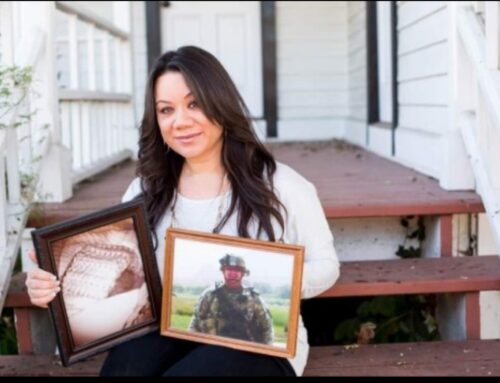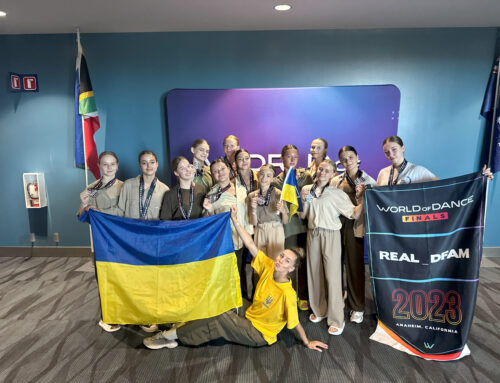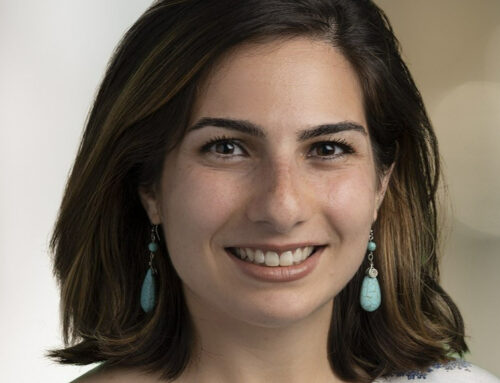Despite the incident, class aims to remain positive moving forward
![]()
By Giovanni Tlaxcalteco Lopez
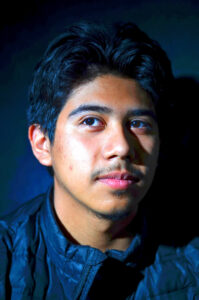
Giovanni Tlaxcalteco Lopez

MHUSD Trustee Pamela Gardiner visited the ethnics studies class at Sobrato on April 26.
Ethnic studies has been a new elective course offered at both Ann Sobrato and Live Oak high schools for the 2023-2024 school year, open to students of all grades. It’s a class that invites students and their families to become more knowledgeable about the people, cultures, and systems in place in the world around us, teaching about “our own heritage, our own history,” as said by a fellow classmate.
It has served as a really eye-opening, educational experience that invites critical thinking, deep conversation, and creating new outlooks on the world and how to make it a better place, one system at a time. It helps us “learn about these terms, learn about these people, help us connect, and to just get a better understanding of these movements,” as they said.
The class hasn’t had it easy, being a new idea to an existing curriculum. It has undergone a tedious and rigorous approval process with lots of planning for what would be taught. It focuses young minds on how to present serious topics, and how to get us thinking about the world with a more open, passionate view.
Through topics such as exploring our identities and backgrounds, diving into the history of cultures and the movement of people, humanization, systems of power and social justice, we students become engaged and are invited to participate in a safe space to share ideas and think critically about our society.
Here are a few quotes from my fellow Sobrato classmates when I asked them about their general views on ethnic studies:
“I really like how engaging it is and how you can apply it in the real world … it’s something that we’re going to run into eventually, and I think it’s a good way to ease us into it, and I think it helps us form our own opinions and be well informed about these movements.”
“I like that we have a … community in this class.”
 “(Ethnic studies) is expanding my knowledge on themes that we have already learned throughout school.”
“(Ethnic studies) is expanding my knowledge on themes that we have already learned throughout school.”
On April 26, we presented our latest unit project: physical models of systems of power within the United States, researching, identifying, and representing power imbalances in the various systems. We researched various sectors, such as the agriculture industry, the political system, our economic system, and medical system, to name a few. We created various models such as posters, interactive games, dioramas, or other physical mediums.
Our teacher, Avery Unterreiner, invited the Morgan Hill Unified School District Board of Trustees to visit and take a look at our projects. She wanted to showcase her pride for our research and what the class has to offer. Only Trustee Pamela Gardiner showed up.
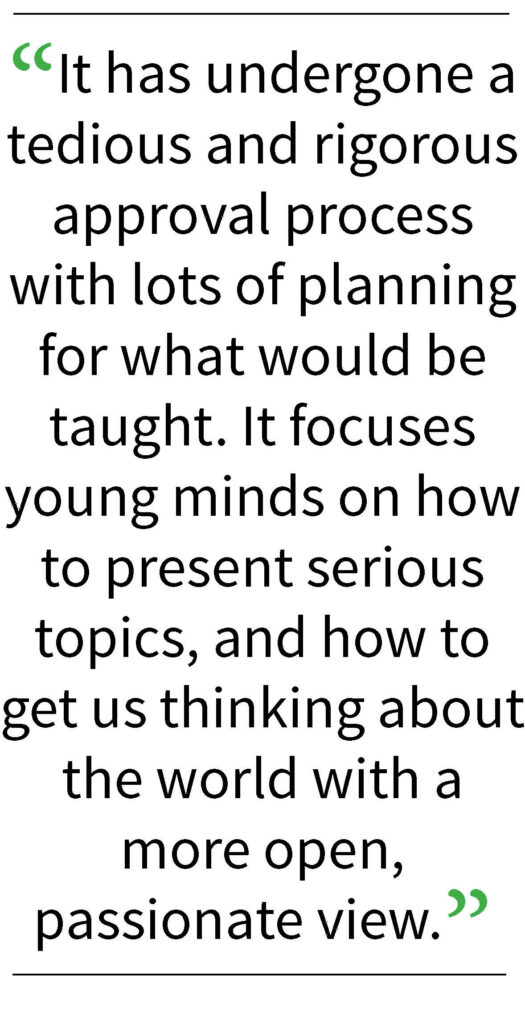 Gardiner introduced herself to the students, telling us the class was “very close” to her heart. As we presented our models through a gallery walk, sharing our research and models to each other, Gardiner walked around, taking pictures of the projects, of the decor on the walls, engaging with various students, who will remain anonymous in this column.
Gardiner introduced herself to the students, telling us the class was “very close” to her heart. As we presented our models through a gallery walk, sharing our research and models to each other, Gardiner walked around, taking pictures of the projects, of the decor on the walls, engaging with various students, who will remain anonymous in this column.
One student said: “I was waiting for people to ask me about my project, and I noticed she was standing right next to me and just reading my project and she didn’t say anything until she asked me a question, ‘Do you really think there’s racism in the housing system?’”
From there, this student continued to listen to Trustee Gardiner, who was walking around and looking at her project, saying, “I don’t understand why young people don’t like their country,” despite there being no mention or reference about it in the conversation nor the project.
Gardiner’s actions were disturbing to the students and Ms. Unterreiner, who took her aside to talk to her about her actions. Our trust, our invitation, our research, taken for granted, with some students saying:
“In the moment, I was really stunned because she is supposed to be a school trustee … it just seemed really unprofessional for her to do,” said one student.
“What she did to our classmates, it was like outside of what she was supposed to do,” said another.
Despite the incident, our class aims to remain positive moving forward. It has, if anything, shown us to remain resilient and continue to pursue our education, even when opposed. It is the hard topics to talk about that are the most worth talking about.
As summarized by a fellow classmate: “I think that this experience has impacted our class in a positive way because I know the kids in this class are very determined about this subject … I feel they will just work harder in spreading awareness of this class.”
Giovanni Tlaxcalteco Lopez is a senior in the Sobrato ethnic studies class. He will attend U.C. Berkeley this fall. He wrote this column for Morgan Hill Life.




